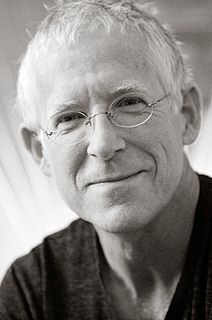A Quote by Nathan Deal
Just because scientists have the knowledge to do it, the technology to do it, and some may even have a financial motive or other incentive to do it, does not make it right.
Related Quotes
Almost all education has a political motive: it aims at strengthening some group, national or religious or even social, in the competition with other groups. It is this motive, in the main, which determines the subjects taught, the knowledge offered and the knowledge withheld, and also decides what mental habits the pupils are expected to acquire. Hardly anything is done to foster the inward growth of mind and spirit; in fact, those who have had the most education are very often atrophied in their mental and spiritual life.
I feel that all knowledge should be in the free-trade zone. Your knowledge, my knowledge, everybody's knowledge should be made use of. I think people who refuse to use other people's knowledge are making a big mistake. Those who refuse to share their knowledge with other people are making a great mistake, because we need it all. I don't have any problem about ideas I got from other people. If I find them useful, I'll just ease them right in and make them my own.
The issue of climate change, it really does bring home the fact that we are on one planet, and that some of the impact of what human beings do in one corner of the world is going to affect people in a distant corner of the world. So we may still feel very far from each other, but we are really very close to each other because of the changes we have made with travel and technology and especially the information technology.
The incentive for the outsider is to attack the system right up to the moment he is co-opted by it. The incentive for the insider -and this took some getting used to- is to allow yourself to be attacked, and then co-opt your most ferocious attackers, and their best ideas. The effect on the system as a whole is to make it more stable, because everyone winds up working on its behalf.
You can't just stop technological progress. Even if one country stops researching artificial intelligence, some other countries will continue to do it. The real question is what to do with the technology. You can use exactly the same technology for very different social and political purposes. So I think people shouldn't be focused on the question of how to stop technological progress because this is impossible. Instead the question should be what kind of usage to make of the new technology. And here we still have quite a lot of power to influence the direction it's taking.
The physical power to get the money does not seem to me a test of the right to tax. Might does not make right even in taxation. To hold that what the use of official authority may get the state may keep, and that if it cannot get hold of a nonresident stockholder it may hold the company as hostage for him, is strange constitutional doctrine to me.
Kant does not think there is anything wrong with being beneficent from sympathy. He thinks we have a duty to cultivate sympathetic feelings by participating in the situations of others and acquiring an understanding of them. He thinks we also have a duty to make ourselves into the kind of person for whom the recognition that something is our duty would be a sufficient incentive to do it (if no other incentives were available to us). That's what he means by "the duty to act from the motive of duty".
In a system of capitalism, as people's wealth rises, the financial incentive to serve them rises. As their wealth falls, the financial incentive to serve them falls, until it becomes zero. We have to find a way to make the aspects of capitalism that serve wealthier people serve poorer people as well.


































